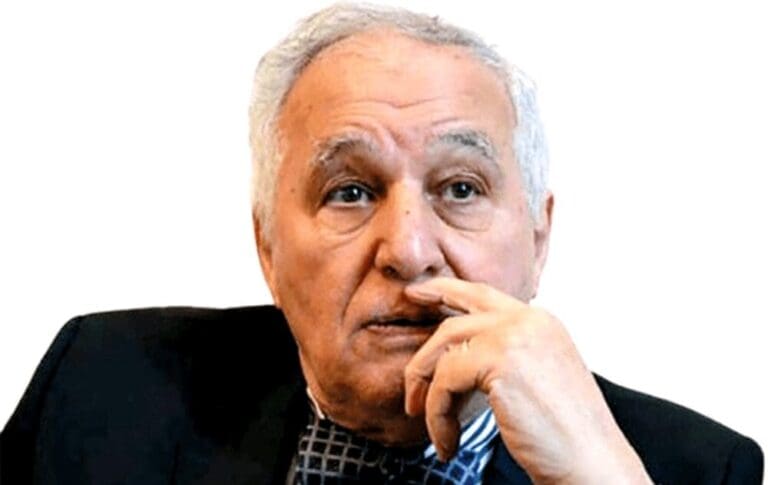Sid Ahmed Ghozali, a former prime minister of Algeria, passed away on Tuesday at the Ain Naâdja Military Hospital in Algiers at the age of 88, Algerian state television announced.
Ghozali’s funeral will take place on Wednesday, after the Dhuhr prayer, at the Ben Aknoun cemetery in the capital.
His tenure at the helm of the Algerian government coincided with a period of significant political turbulence, including the presidency of Mohamed Boudiaf, a reformist figure who returned from exile in Morocco before being tragically assassinated just six months later.
Born on March 31, 1937, in Tighennif, Mascara Province, Ghozali graduated from the École nationale des ponts et chaussées in Paris. He held several high-ranking positions within the Algerian state, leaving his mark on key stages of the country’s contemporary history. His time as prime minister, from June 1991 to July 8, 1992, occurred during a particularly critical period.
Ghozali’s career in public administration began shortly after Algeria’s independence. In 1964, he became one of the youngest members of the government when he was appointed Undersecretary of State for Public Works. He later took the helm of Sonatrach, the national oil company, from 1966 to 1977, playing a pivotal role, especially in orchestrating the nationalisation of hydrocarbons in 1971, a strategic decision that solidified Algeria’s economic sovereignty over its energy resources.
His ministerial career included several key portfolios: Minister of Energy and Petrochemical Industries (1977-1979), Minister of Water Resources (1979-1980), Minister of Finance (1988-1989), and Minister of Foreign Affairs (1989-1991), before being appointed Prime Minister.
His time as PM coincided with major political upheavals, including the presidencies of Chadli Bendjedid and Mohamed Boudiaf.
He oversaw Algeria’s first multi-party legislative elections in December 1991, a historic turning point that led to one of the most controversial episodes in independent Algeria’s history: the dissolution of the electoral process and the rise of a political crisis.
The assassination of Mohamed Boudiaf on June 29, 1992, marked a dramatic turning point. Returning from twenty-eight years in exile in Morocco, Boudiaf was shot during a televised speech at the Annaba Cultural House by a member of his own security detail.
This occurred after the late president expressed support for Morocco’s territorial integrity and initiated investigations into corruption within the military apparatus. Ghozali resigned shortly after this pivotal event in Algerian national history.
Following his tenure as PM, Ghozali was appointed Algeria’s ambassador to France, a position he held from 1992 to 1994. He later unsuccessfully attempted to run for president in the 1999 and 2004 elections. His plans to establish a political party were not approved by the authorities.
His last public appearance was on February 25, 2024, when he spoke at the El Moujahid Forum on Algeria’s international positioning challenges.
President Abdelmadjid Tebboune has praised Sid Ahmed Ghozali’s memory, honouring his commitment and the numerous responsibilities he carried within the Algerian state.
MK/ac/sf/lb/as/APA


